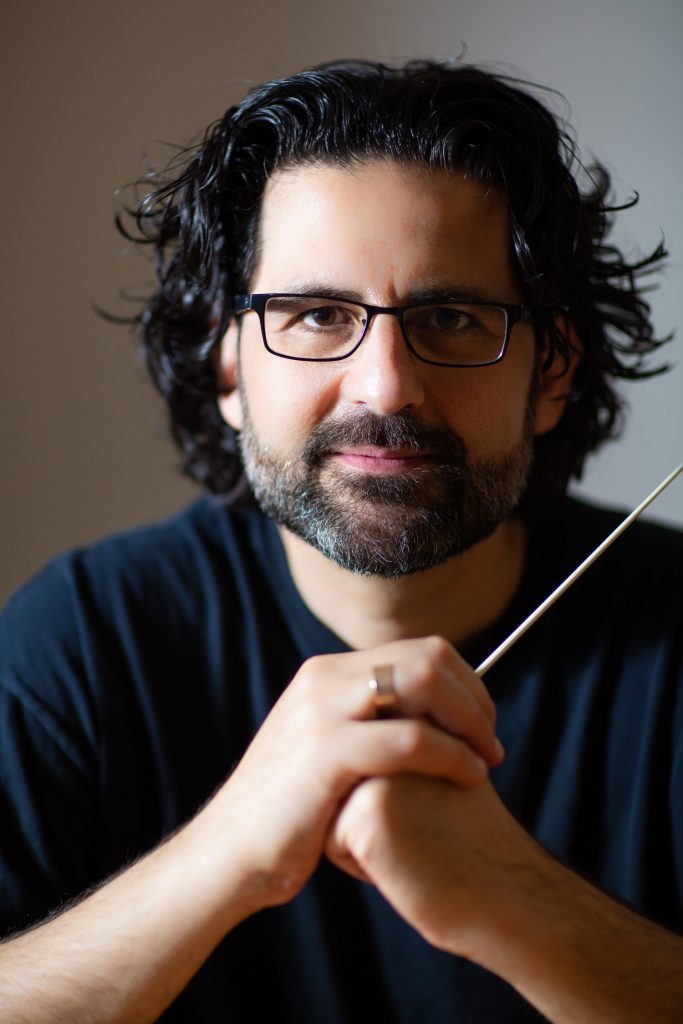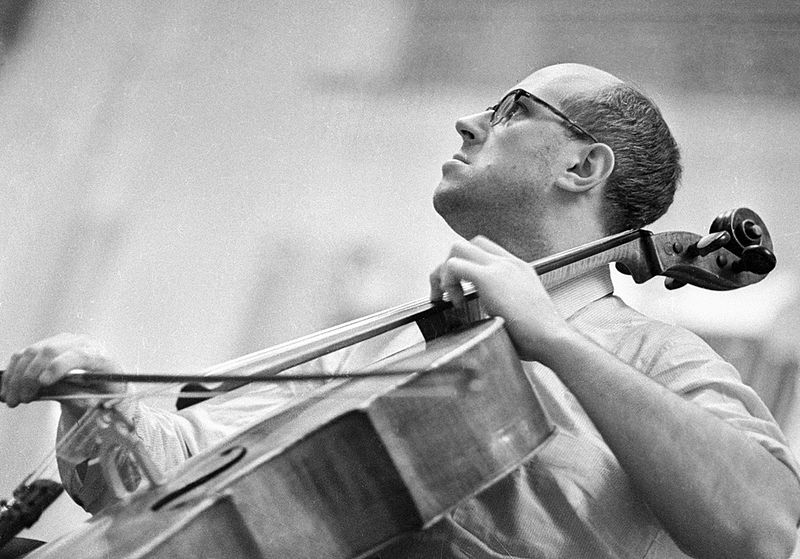by Jarrett Hoffman

“Last time I was in Cleveland, what was really special for me was the deep connection I had with the orchestra right away,” cellist and conductor Amit Peled said during a telephone interview.
On that trip this past May, he joined CityMusic Cleveland as soloist in Saint-Saëns’ Cello Concerto No. 1, and the relationship he felt wasn’t that of soloist and accompanists. “It was really music-making in an equal way,” he said. “That’s what I liked about the orchestra from the time we spent together, and that’s what I want to preserve. I think we both felt a connection, and that’s why it resulted in this relationship.”
In July, it was announced that Peled would be the next music director of CityMusic, while his predecessor Avner Dorman has stepped into the role of music director emeritus. Peled will begin his first season — the ensemble’s 16th — by leading the orchestra in free performances October 17-20 in Beachwood, Willoughby Hills, Slavic Village, and Lakewood (details below).
The title of the program, “Between Two Giants,” has a few layers of meaning. It includes works by composers who, as Peled said, are “musical giants” — Mozart’s Symphony No. 35 will begin the program, and Haydn’s Symphony No. 104 will conclude it. And standing in front of the orchestra will be “a physical giant,” as Peled called himself, laughing. He’s 6’5” and won’t be using a podium to get any taller. “If I did, all you’d see is me standing there,” he said.
It’s important to Peled to present the classics, but just as important to program music that’s relevant to the community — in this case, two pieces that “relate to us as humans but also as Americans.”
Keeping in mind his own faith, the Jewish community in Cleveland, and the timing of the High Holidays, Peled will solo in Bruch’s Kol Nidrei, whose first theme is based on the declaration recited on Yom Kippur “where you are asking for forgiveness from God,” he said. Before the performance, he’ll have the orchestra play musical examples, and he’ll speak about the piece.
“My hope is that instead of sitting in a concert hall, the audience will feel they are sitting in a synagogue and supporting me while I plead for forgiveness,” Peled said. “And of course I will not let them know if I make it to heaven or hell — they’ll have to decide at the end of the piece.”
Facing away from the orchestra as a cello soloist makes it difficult to conduct, especially when he will be playing during the majority of the piece. “So I want the orchestra to be able to play it without me conducting,” he said. “I also think that’s an important part of establishing the sound of an orchestra.”

Peled doesn’t believe in programming new music just because it’s new. “My feeling is that Strum will be the highlight of the concert,” he said. When he performed the piece with the Mount Vernon Virtuosi, an orchestra in Maryland that he founded and directs, he said it made quite an impression on the audience as well as the players.
“It’s really hard, but once you learn all those rhythms of African American and Native American music, you feel one moment that you are in New Orleans in the French Quarter, then the next you’re on Native American land. It’s this mix of ideas that is basically who we are as Americans, and that’s the beauty of it.”
~ ~ ~

That’s exactly what Peled wants as a conductor: to have a bigger musical impact than he can have just as a cellist. “I’ve seen that conducting simply allows me the opportunity to share classical music with more and more people,” he said.
It should be noted that Peled didn’t just suddenly grab a baton. He studied conducting with Shinik Hahm at Yale University and the late Tamara Brooks at New England Conservatory. This season, in addition to his work with the Mount Vernon Virtuosi and CityMusic, Peled will make his conducting debut with the Peabody Symphony Orchestra in Schubert’s Symphony No. 5.
If Rostropovich is one of Peled’s heros, another is Phil Jackson, considered one of history’s greatest basketball coaches. Like Jackson did with Michael Jordan, Peled wants to give freedom to his musicians. “I want to convince them that my way is good, but to let them do it their own way when they have a solo and need to shine.” He called it the greatest challenge of being a conductor — “how to be a great dictator in a very beautiful democracy. You show them what you want, but they produce the sound, not you. That’s the beauty of it.”
Peled grew up in Israel playing basketball, and he often compares the sport to classical music beyond the roles of coach and conductor. “I’ve actually done concerts where I’ve met with a college basketball team, and we’ve talked about the similarities and differences,” he said. “Making music together is about listening and respecting different opinions. And playing basketball is the same thing — it’s not about one player doing it all. That’s not how you win a championship.”
Peled brought up the bigger picture — being a musician is being part of society. “Music teaches you that you are not the only one, and it’s the same for our communities in a democracy. That’s why I think music should be in schools and should be taught everywhere.”
Though he’s still based in Baltimore, where he teaches at the Peabody Institute at Johns Hopkins University, going forward Peled hopes to be in Cleveland more than just the few days he conducts CityMusic. “I want to bring the orchestra to the community to show them the equivalence between what we do onstage and what people do in daily life.”
His dream for CityMusic? For the Cavaliers to make the playoffs, and for the orchestra to play the national anthem at one of their games. “And then I want courtside seats so the orchestra can sit there and just watch the game,” he said. “Even if it’s a regular season game, if we can play the national anthem, then that’s it, I did my share.”
CityMusic’s performances take place on Thursday, October 17 at 7:30 pm at The Temple Tifereth-Israel in Beachwood, on Friday, October 18 at 7:30 pm at St. Noel Church in Willoughby Hills, on Saturday, October 19 at 8:00 pm at Shrine Church of St. Stanislaus in Slavic Village, and on Sunday, October 20 at 5:00 pm at Lakewood Congregational Church. Admission is free.
Published on ClevelandClassical.com October 14, 2019.
Click here for a printable copy of this article


